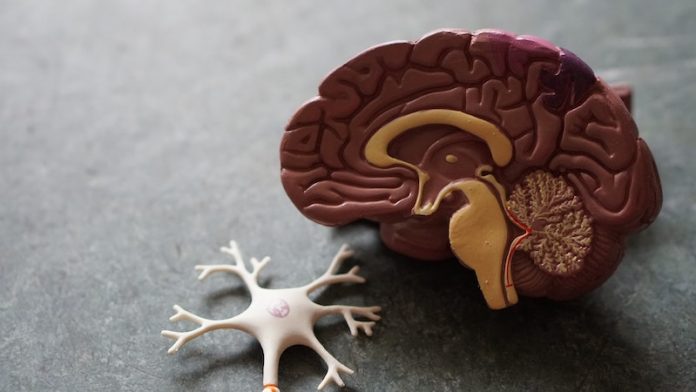
The liver plays a vital role as a filter in the human body. But what happens when it malfunctions?
In a recent study from the Universities of Geneva and Lausanne, researchers performed a detailed analysis of hepatic encephalopathy, a type of brain damage caused by chronic liver disease.
They found that a dysfunction of the liver provokes cerebral molecular disturbances in two weeks, even though no physical symptoms are apparent.
The research results may help detect brain damage linked to liver diseases via a brain analysis before an individual’s state of health deteriorates.
When the liver is diseased, as is the case with cirrhosis, a number of substances are no longer filtered, which can cause psychological, motor and neurocognitive disorders in adults.
This disease, called hepatic encephalopathy, may manifest itself in a wide spectrum of symptoms, even including a coma.
It is known that one of the actors in hepatic encephalopathy is ammonium.
Ammonium is a substance produced when proteins break down, some of which is directed to the brain where it is transformed into glutamine.
If the liver malfunctions, it causes an excess amount of ammonium in the brain, and therefore glutamine production, which can trigger cerebral edema and, in some cases, hepatic encephalopathy.
In the study, the team observed rats with chronic liver disease for eight weeks.
They found that molecular changes affect the brain as early as the second week of liver disease. And yet, the rats have minimal symptoms of the disease.
The external signs of the disease appear between the fourth and eighth week: jaundice, malnutrition or water in the belly.
From that moment, they observed that in addition to there being an excess of ammonium in the brain, the concentration of the two other molecules drops: vitamin C, an antioxidant, and creatine, which fulfils many functions, including energy-related functions.
The results suggest that a brain scan might detect the neurological manifestations of chronic liver disease long before the appearance of the first symptoms.
The researchers will also examine whether it would be possible to protect the brain from this type of deterioration — or at least reduce the damage — by compensating for the lack of creatine and vitamin C using supplements or through the use of probiotics.
If you care about liver health, please read studies about the cause of fatty liver disease and findings of this diet may reduce non-alcoholic fatty liver disease by 50%.
For more information about liver diseases, please see recent studies about this nutrient supplement may help treat fatty liver disease and results showing that even mild fatty liver disease may raise early death risk.
The study is published in the Journal of Hepatology. One author of the study is Valérie McLin.
Copyright © 2021 Knowridge Science Report. All rights reserved.



